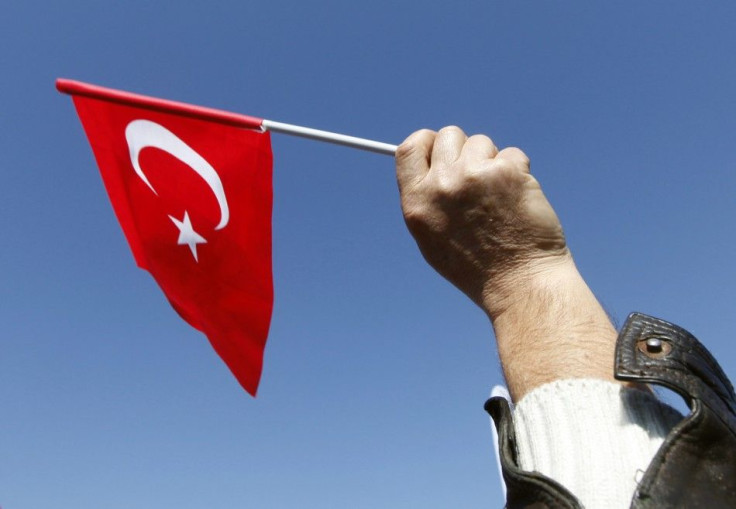Turkey Offers Syrian Refuge; France, U.K. Push for U.N. vote

Turkey opened its borders to anxious Syrian refugees Wednesday, keeping its word when Turkish Prime Minister Recep Tayyip Erdogan said his country would not close its doors to them.
Turkey also urged the Syrian government to curb violence against civilians after thousands abandoned a town near the Turkish frontier in fear of a military assault, Reuters reported.
We hope that Syria softens its stance toward civilians as soon as possible and makes the steps it is taking for reforms more convincing for civilians, for a transformation, Ergogan said.
As a result of the unrest in Syria, and startled by the bloodshed, Britain and France have handed the U.N. Security Council a draft resolution on condemning Syria's crackdown on protestors, despite the risk of a Russian veto.
And if anyone votes against that resolution or tries to veto it, that should be on their conscience, British Prime Minister David Cameron said.
The draft resolution condemns the repression and demands humanitarian access, Cameron said. Western Diplomats did not expect a vote on Wednesday, but were hoping for results by the end of the week. Russia and China, both of which hold vetoes, have made obvious their disdain for the idea of council involvement; involvement, they argue, could destabilize a strategic Middle Eastern country.
The fleeing of Syrian refugees into Turkey follows fighting in Jisr al-Shughour earlier this week, in which Syrian officials claimed 120 national security forces were killed by armed gangs. However, many present during the attack maintain that the army fired upon demonstrators, prompting a mutiny within the ranks.
Many in Jisr al-Shughour fear further action from Syrian security forces, and those who have stayed in the city have built roadblocks out of tress, rocks and burning tires.
Among those who fled the city today were a reported 30 who were wounded in the initial skirmish. According to Turkish authorities, all 30 are receiving medical treatment while the remaining refugees are being sheltered in a camp near the town of Yayladagi.
The attack in Jisr al-Shughour is the latest event in a string of escalating violence in the country. Last weekend, the Syrian government sent tanks and helicopters to disperse protestors in the cities of Hama and Jisr al-Shughour.
Protests in the Arab Republic began on January 26, 2011. Sources say that more than 1200 people have died since violence began in March.
© Copyright IBTimes 2024. All rights reserved.











